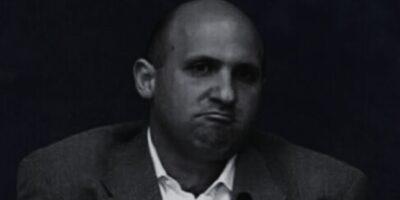One of the most significant aspects of Haitian-Americans involvement in American politics is their representation in government
Fifteen years after Mathieu Eugene paved the way for Haitian-Americans in U.S. politics by becoming the first Haitian-American to win a Council seat in New York City, Haitian-Americans’ involvement in U.S. politics is on the rise.
A native of Cap-Haïtien, Eugene spent 14 years as a City Council Member. Before his stint as a City Council member, Eugene was a community organizer and still runs a youth program in Brooklyn.
One of the most significant aspects of Haitian-American involvement in U.S. politics is their representation in government. There are currently several elected officials of Haitian descent in office, including the Mayor of North Lauderdale, Mayor Samson Borgelin, Massachusetts State Representative Bud Williams, and New Jersey State Assemblywoman Yvonne Lopez. These officials serve as powerful voices for the Haitian-American community and bring attention to the issues that matter to their constituents.
With a population of over 1 million in the United States, Haitian-Americans are becoming more involved in the political process and making a significant impact on the country’s political landscape.
These officials serve as powerful voices for the Haitian-American community and bring attention to the issues that matter to their constituents.
For Gerard Cadet, a retired member of the Eleven 99 union who worked for Barack Obama’s campaign, Haitian-Americans learned how to organize themselves to support leaders who want to be elected at local and legislative levels in New York, Florida, and Massachusetts.
A founding member of Little Haiti in Brooklyn, Cadet remembers a time before Matheiu Eugene’s election, when the first-generation of Haitians who immigrated to the United States were not interested in politics. “The people who came here in 1983 did not understand that politics could impact their lives, not to mention the fact that they came from a dictatorship that prevented them from freely expressing their views and being politically active”, he says.
Read also : Wyclef Jean celebrated at the 7th annual Caribbean Chefs brunch
Haitian-American leaders and grassroots organizations in the Haitian diaspora are key to supporting Haitian-American candidates in their running for office at local and legislative levels in Florida, New York, and Massachusetts, based on his experience.
In the past, the Haitian community was only considered a source of votes for presidential and legislative candidates. Local candidates from other communities also courted Haitian-Americans to cast their ballots in their favor. “With the election of Mathieu Eugene, they understood that there was a need to come together and have a seat at the table. This generation has learned what it takes to move forward”, says Cadet.
Haitian-Americans learned how to organize themselves to support leaders who want to be elected at local and legislative levels in New York, Florida, and Massachusetts.
In 2021, Rita Joseph succeeded Matheiu Eugene thanks to Haitian-American voters. Ms. Joseph is now the chair for Education in the City Council. Before Joseph’s election into office, the Brooklyn-born daughter of Haitian immigrants, Mia Love, was elected the first black female Republican and Haitian-American to Congress in 2014. In 2019, Farah Louis won a City Council seat in New York.
Today, four Haitian-Americans hold office as New York City Council members, and six others as New York State City Council and Assembly members. A City Council in New York City represents approximately 120 million people.
Out of 41 districts in New York, two district leaders are Haitian-American. The district leaders are similar to the Administrative Councils of Communal Sections (Conseils d’administration de sections communales, CASEC) in Haiti.
Not only are Haitian-Americans making their way into office in US politics, but they also get seats in the Democratic party. Rodneyse Bichotte Hermelyn, Assembly member and District Leader for New York State’s 42nd Assembly District, is the Brooklyn Democratic party chair. She got reelected for that position in October 2022. As a District Leader, she represents Flatbush, East Flatbush, Midwood, and Ditmas Park in Brooklyn.
In the past, the Haitian community was only considered a source of votes for presidential and legislative candidates.
Born and raised in Brooklyn, Assembly member Rodneyse Bichotte Hermelyn is the first Haitian-American woman elected in New York City; the first Engineer elected to the New York State Legislature; and the first woman to chair the Majority County Party in Brooklyn. Since Assembly member Bichotte Hermelyn became a legislator in 2015, she has introduced over 100 pieces of legislation, 20 of which have become law. She co-sponsored over 250 others.
A different dynamic in Florida
For Francesca Menes, Florida State Coordinator for Local Progress and the founder/Chief Community Engager of Community Strategies, division was a problem for Haitian communities in Florida, especially in Miami-Dade County.
Menes explains that in 2016, four or five Haitian-American candidates participated in local elections, and the Haitian community had more votes than any others. According to her, too many Haitian candidates were in the race, where strategizing together to win the race may have been best.
“But this time around, Haitians are doing better, she explains. The community started understanding the importance of unifying behind those who are doing a good job”.
Vanessa Joseph, elected City Clerk for the City of North Miami in May 2019, and an immigration attorney, sees her participation in politics as an opportunity to help people within the government. City Clerk Joseph explains that in the past, Haitian Americans involved in politics were not accountable.
Read also : Haitian immigrants to the U.S. face mental health issues
“People did not understand what the elected officials were doing. Now there is much more transparency. Before I was a volunteer, I knew I could make a difference. I run for office to educate people,” she says.
But this time around, Haitians are doing better, she explains. The community started understanding the importance of unifying behind those who are doing a good job.
In her position, she participates in bi-monthly Council meetings chaired by the Mayor where the council discusses the city’s affairs and votes on different items that can change people’s lives. The public can participate and speak on the items defined in an agenda. She encourages public comments.
“I am a public servant. I am here to serve my community. Municipal resources are often limited, which makes it difficult to realize everything you want to do for the community.”
Some critics believe the Cuban community, which purportedly shows more unity, is better organized than the Haitian community. When it comes to this comparison, Ms. Joseph explains: “We cannot necessarily compare ourselves to the Cubans because they have a different journey. The challenge is to educate our community in politics.”
Read also : Vodou: she was at Harvard when the “loas” of Haiti claimed her
In January 2022, Democrat Sheila Cherfilus-McCormick won the primary for Florida’s 20th Congressional District, which includes parts of Broward and Palm Beach Counties. She is the first Haitian-American Democrat to be elected to Congress representing South Florida, defeating former Broward Mayor, Dale Holness.
We cannot necessarily compare ourselves to the Cubans because they have a different journey. The challenge is to educate our community in politics.
Cherfilus-McCormick serves on the House Committee on Education and Labor, as well as the House Committee on Veterans Affairs. She is also a member of the Congressional Black Caucus, Haitian Caucus, and Caribbean Caucus. In 2023, the House Democratic Steering & Policy Committee recommended that she serve on the House Foreign Affairs Committee.
Marleine Bastien, longtime immigration activist, executive director of Family Action Network Movement (FANM) and licensed Clinical Social Worker, won her District 2 seat in Miami Dade County after a fierce race against her opponent, Mayor Philippe Bien-Aimé. Bastien is the former Chair of the Florida Immigration Coalition and Vice-Chair of the Haitian-American Grassroots Coalition. Over the course of 30 years, Bastien has worked on many important campaigns to fight for Haitians immigrants’ rights.
Despite these achievements, Frandley Denis Julien, believes there is still a problem of representation in the community. He is an immigration, family, and personal injury attorney; working with Haitian-American candidates and activists in the Haitian community in South Florida. He is also a member of the Democratic Club in Broward County. For him, the source of the issue stems from persistent conflicts between private and collective interests.
“The Haitian community is still underrepresented in Florida. Everyone is complaining that Haitians are being pushed out of Little Haiti with the gentrification process. We need a structured organization to deal with this.” he says.
Read also : Why does the United States continue to occupy a Haitian island?
There is a Democratic force in Little Haiti, Miami Shores, North Miami, Miami Beach, and Fort Lauderdale, Julien explains. The number of seats Haitian-Americans represent does not match that democratic strength however.
Everyone is complaining that Haitians are being pushed out of Little Haiti with the gentrification process. We need a structured organization to deal with this.
Though there is an improving trend at the legislative level, the problem also seems to lie in a lack of participation. Julien points to social mobility, where Haitian-Americans become detached from the Haitian community after settling in wealthy communities throughout the US —no longer showing solidarity with the community. “Some become Republican when they change social status or fit in,” he says.
According to most of our interlocutors, Haitians tend to vote for the Democratic Party but more and more Haitians have shifted toward the Republican party or registered as Independents.
Another factor is that the Haitian diaspora is more interested in influencing U.S. policy at home than in influencing it toward Haitians in the U.S.
Religion is also a factor that handicaps people’s participation in public affairs. “If you look at the church activities and services, they are always full of people, as well as for soccer, cultural activities like festivals, parties, etc. People are absent when it comes to meetings for the welfare of the community.”
© Cover image : Des leaders communautaires se joignent au membre du conseil Mathieu Eugène pour co-nommer Flatbush Ave en Jean-Baptiste Point du Sable 47. African in Harlem
Gardez contact avec AyiboPost via :
▶ Notre canal Telegram : cliquez ici
▶ Notre Communauté WhatsApp : cliquez ici







Comments